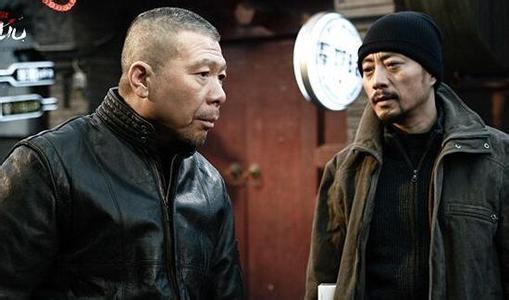
【電影簡介】
曾經風光四九城的老炮六爺(馮小剛飾),難以適應社會巨變,蟄伏于胡同深處,過著溜鳥、管閑事、發牢騷的無聊日子。
某日,六爺和“小炮兒”兒子曉波(李易峰飾)父子間產生巨大情感沖突,導致小炮兒負氣離家出走,不想遭遇暗算,被新崛起一代的“小爺”小飛(吳亦凡飾)非法拘禁。為了解救兒子,并償還當年對兒子的愧疚之情,六爺重出江湖。
六爺用自己的規矩,試圖擺平事件,卻無奈的發現,無論是這個時代,還是自己的身體,早已今非昔比。一場父子恩仇、新舊勢力的對決無法避免。
在解決爛攤子的過程當中,老炮發現自己身體也出現了問題,真正力不從心。但同時也在抽絲剝繭的查詢過程中抓住了 “三環十二郎” 的把柄,兩人下了對戰書決定來一場單挑。
【音頻文本】
Director Feng Xiaogang is known as much for his quick temper as for the fluctuating popularity of his movies. But not many know of the ups and downs in his private life. In Guan Hu&`&s "Mr. Six," Feng takes on a role that shares much in common with himself in age and temperament, and that gig has won him a best actor title at China&`&s 52nd Golden Horse Awards.
Mr. Feng plays an old street punk "Mr. Six" in his 50s who has considerable influence over his neighborhood in Beijing. While respecting the official laws and regulations, Mr. Six relies on a special set of rules to govern the underground society within his sphere of influence. Everything seems to work out just fine in his life, until his son gets into a dispute with a group of drag-racing youngsters who have deep pockets and powerful connections.
Mr. Six&`&s insistence on solving the matter his own way leads to more complications, but nonetheless his predilection points to a period of time when people used to behave, interact, settle differences and seek justice according to social norms. Such unofficial way of keeping order was common in times of ineffective judiciary, or in an underground society where people had no affection for the righteous authority.
In Guan Hu&`&s movie, Mr. Six tries to impose the old ways on a group of young people who have powerful parents in modern day China. What essentially is a gangster feud is deliberately played out as a clash between generations, or rather, a clash between the traditional and the modern-minded members of the society.
Feng Xiaogang is very successful in his portrayal of an old man who bemoans the bygone of his glorious days and is reluctant to surrender his privileges in the modernization process. His performance is the highlight of the story.
However, the profiling of the antagonists seems less straightforward. In order to beef up the dramatic effect, the storywriter at one point secretly replaces Mr. Six&`&s young opponents with their wealthy and powerful grown-up associates. That puts the rivalry in a different context: the old gangster leader Mr. Six, who has lived a rather successful life bullying others with brutal force, now finds himself on the receiving end of bullying by his rich and powerful contemporaries, who have risen to power by equally unsavory methods.
This shift in the latter half of the film puts it in a rather awkward position. What could have been interpreted as a reflection on generation gap almost becomes a direct assault on the effectiveness of the country&`&s judiciary system. Fortunately, misunderstanding is averted when the director chose to be consistent with Mr. Six&`&s character and arranged a final showdown within legal boundaries.
Guan Hu&`&s story is certainly impressive with all the authentic Beijing dialect and prevailing male hormone, but the ambiguity of the director&`&s message is still worth a few complaints. A colleague of mine said maybe I&`&ll be able to relate to it much better when I am old. True, when I reach a more mature age, I will be missing a lot of things: my teeth, my straight backbone, or the ability to walk, but make no mistake, I will not want to go back to a time when justice is upheld by the verdict of a gang leader, rather than the rule of law. I guess that&`&s the generation gap between people of my age and the contemporaries of Mr. Six.
輕松調頻EZFM 微信mrweekly











